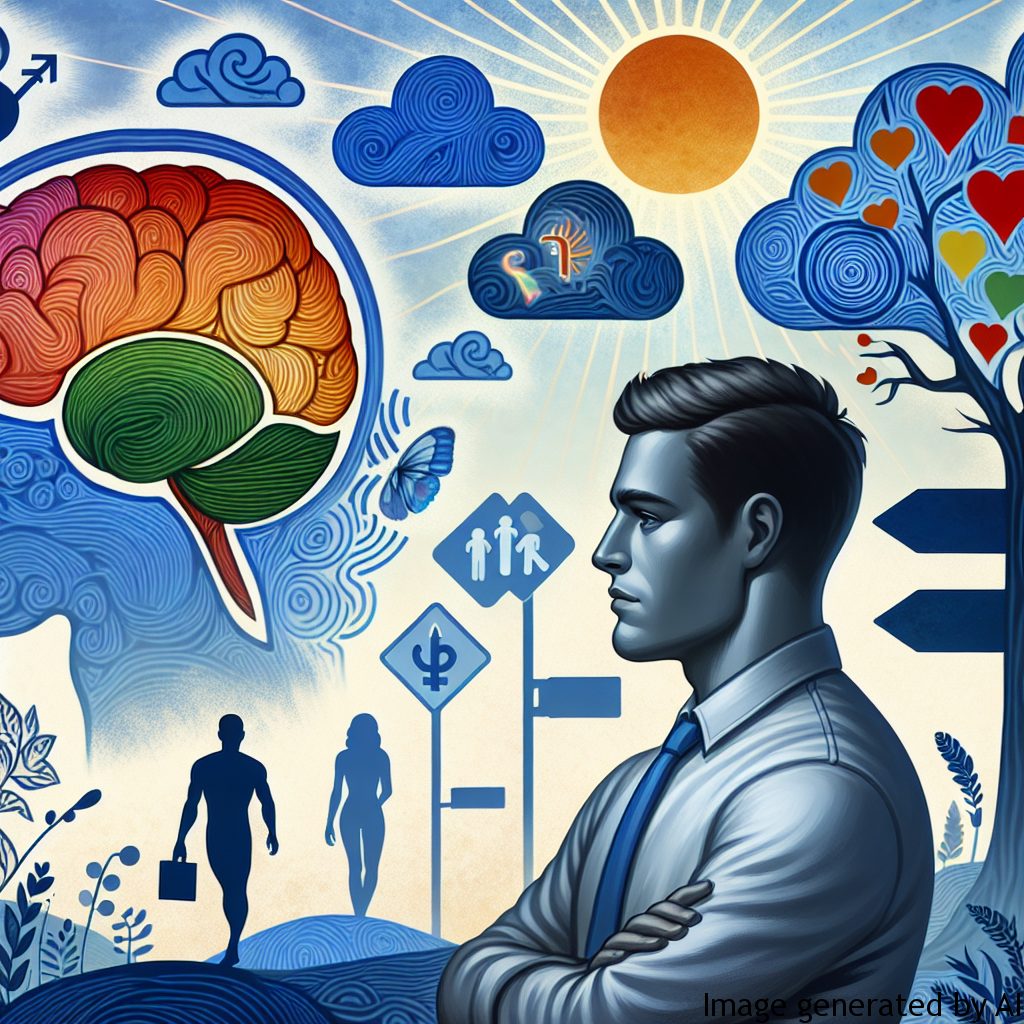Introduction
Conceptualizing sexual identity in regards to male mental health can be complicated given the multitude of societal expectations and gender norms. The ways men understand and express their sexual identities can contribute to their overall mental health, both positively and negatively. Understanding the relationship between male sexual identity and mental health can provide meaningful insights into how societal expectations and gender norms can affect the mental health of men.
Description of gender expectations and their impact on male mental health
Male sexual identity is largely shaped by societal gender expectations which often prescribe how men should look, behave, and express emotion.
The Influence of Masculinity Norms
The traditional norms of masculinity such as emotional stoicism, independence, and dominance can contribute to feelings of anxiety, depression, and stress in men. Adherence to these norms can discourage men from seeking help for mental health issues, leading to higher rates of untreated mental illness among men.
Sexuality and Mental Health
Societal stigma around sexual orientation can severely impact the mental health of men who identify as LGBTQ+. Studies have shown that these individuals are at a higher risk for mental health disorders due to factors such as discrimination, rejection, and internalized homophobia.
The Effect of Gender Expectations on Self-Esteem
Struggling to conform to gender expectations can also impact a man’s self-esteem and overall psychological well-being. Men who do not fit into the traditional mold of masculinity often face social rejection, which can lead to feelings of isolation and depression.
Examples of how gender roles can affect a man’s life
Consider the man who constantly feels pressured to hide his emotions due to societal expectations of male stoicism. This suppression of emotions leads to an inability to manage stress effectively and an increased risk of mental health disorders. A gay man might hide his sexual orientation to avoid societal judgment or discrimination, leading to anxiety and depression. Men who do not meet societal standards for masculinity, such as those who are not athletic or physically strong, often face ridicule or exclusion, leading to low self-esteem and mental health issues.
Tips for improving mental health in consideration of gender roles
Challenging gender norms is vital in promoting positive mental health among men. Encouraging emotional literacy and expression in men can break down the harmful norm of emotional stoicism. Cultivating an environment where all forms of masculinity are accepted can make men feel seen and validated. For men who identify as LGBTQ+, it’s critical to offer support and connect them with resources. Encouraging help-seeking behaviours and breaking the stigma around mental health can also lead to better mental health outcomes for men.
Conclusion
Moving beyond traditional notions of masculinity and accepting a broader definition of male sexual identity is fundamental to improving men’s mental health. Recognizing the pressures and societal expectations that men face in relation to their sexual identity can enable more suitable and effective mental health interventions. Therefore, addressing male sexual identity in mental health is paramount in facilitating a more comprehensive understanding and treatment of male mental health issues.

